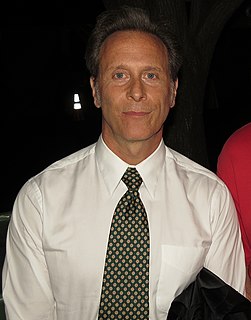A Quote by Hans Reichenbach
The essence of knowledge is generalization. That fire can be produced by rubbing wood in a certain way is a knowledge derived by generalization from individual experiences; the statement means that rubbing wood in this way will always produce fire. The art of discovery is therefore the art of correct generalization. ... The separation of relevant from irrelevant factors is the beginning of knowledge.
Related Quotes
The word generalization in literature usually means covering too much territory too thinly to be persuasive, let alone convincing. In science, however, a generalization means a principle that has been found to hold true in every special case.... The principle of leverage is a scientific generalization.
The first man who said "fire burns" was employing scientific method, at any rate if he had allowed himself to be burnt several times. This man had already passed through the two stages of observation and generalization. He had not, however, what scientific technique demands - a careful choice of significant facts on the one hand, and, on the other hand, various means of arriving at laws otherwise than my mere generalization.
We profess to teach the principles and practice of medicine, or, in other words, the science and art of medicine. Science is knowledge reduced to principles; art is knowledge reduced to practice. The knowing and doing, however, are distinct. ... Your knowledge, therefore, is useless unless you cultivate the art of healing. Unfortunately, the scientific man very often has the least amount of art, and he is totally unsuccessful in practice; and, on the other hand, there may be much art based on an infinitesimal amount of knowledge, and yet it is sufficient to make its cultivator eminent.
Color is crucial in painting, but it is very hard to talk about. There is almost nothing you can say that holds up as a generalization, because it depends on too many factors: size, modulation, the rest of the field, a certain consistency that color has with forms, and the statement you're trying to make.
For life is a fire burning along a piece of string--or is it a fuse to a powder keg which we call God?--and the string is what we don't know, our Ignorance, and the trail of ash, which, if a gust of wind does not come, keeps the structure of the string, is History, man's Knowledge, but it is dead, and when the fire has burned up all the string, then man's Knowledge will be equal to God's Knowledge and there won't be any fire, which is Life. Or if the string leads to a powder keg, then there will be a terrific blast of fire, and even the trail of ash will be blown completely away.
Obviously, there's all sorts of life happening all around us, but on a human level, I'm just interested in people making informed decisions. You know, increasing their awareness. And also, trying to encourage people to be more fascinated with information and science and knowledge of all sorts, instead of, you know, it's a generalization, but the encouragement by society, the reflections that society gives us, which is media, television, art - anything, really.
Let me go out on a limb and suggest that those who see hints of a new class ideology developing around information technology are not necessarily wild-eyed. "Bit-twiddlers" are neither exactly proletariat nor bourgeoisie. They may not own the means of production in the sense that Marx argued, but they certainly do have significantly control over those means, in a more profound way than the term "symbols analysts" or "knowledge workers" captures. As a rough generalization, they value science and technological problem-solving elegance equally at least with profit.







































